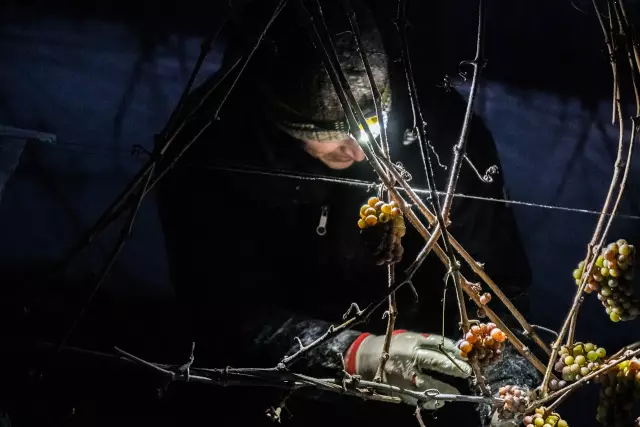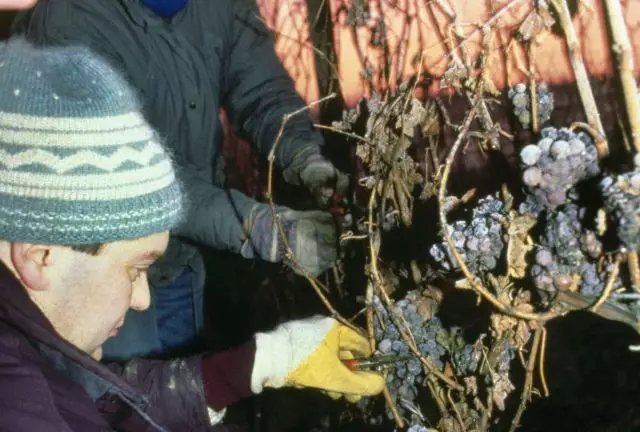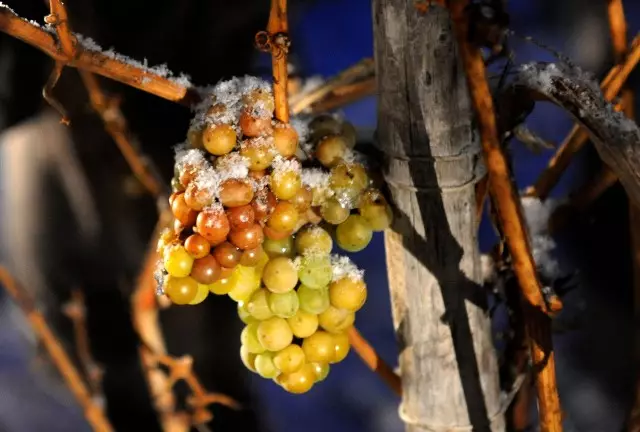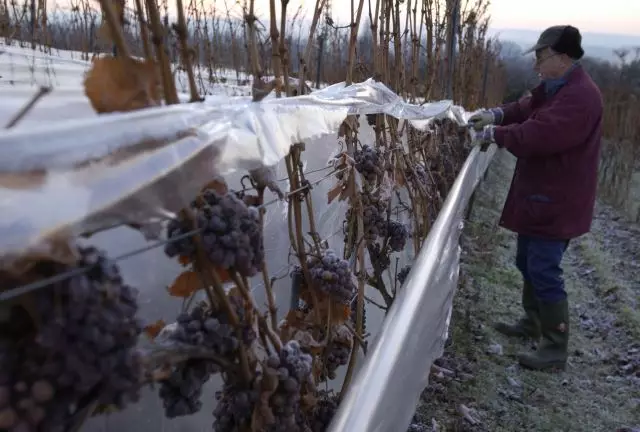Icewine in Germany: Deep frost brings forth vintage 2021
The Johanneshof winery in Bad Kreuznach-Bosenheim was the first to be able to harvest icewine this winter season 2021. According to the owner Martin Korrell, Riesling grapes could be harvested at temperatures of minus eight degrees in the "Bad Kreuznacher Paradise" site.
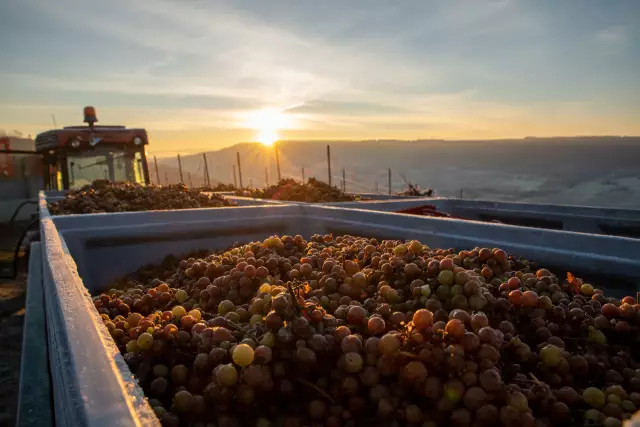
Harvesting icewine in early morning hours
Korrell from the Nahe region thus fulfills the legal requirements for ice wine harvesting, which requires temperatures of below -7 degrees Celsius. In very early morning hours of december 21st around 20 harvest workers collected the frozen grapes with a must weight of 142 degrees Oechsle. This unit of measurement indicates the must weight of the sugar content and other dissolved substances in the grape juice.
Mosel vintners brought in highly aromatic frozen grapes
In the Mosel region, among others in Erden (zip code 54492), employees of the Dr. Hermann estate (photo) harvested icewine (sites: Erdener Herrenberg and Lösnicher Försterlay). Frozen grapes could also be brought in in Leiwen (Alexander Loersch winery and Werner winery) and Longuich (Christopher Jung hiliday winery). In addition, vintners in the Mosel-towns Selbach-Oster and Zeltingen as well as Würtzberg/Serrig are so fortunate to process frozen, highly aromatic grapes.
Winemaker in Franken also pleased about successful icewine harvest
Furhtermore, the Meinzinger winery in Frickenhausen in the wine-growing region of Franken was also pleased about a successful harvest of the frozen ice wine grapes: At -8 degrees Celsius, ice wine grapes with a must weight of 148 degrees Oechsle - a total of approx. 200 liters - "That is a very rare thing for us," says Philipp Meintzinger. The winery was able to bring in the last ice wine in 2016.
152 estates in Rhineland-Palatinate signed up for ice wine harvest
For this winter, some 152 estates in Rhineland-Palatinate have registered a total area of around 107 hectares for a possible ice wine harvest, as the Chamber of Agriculture announced. In the previous year there were only 93 farms with a total of 72 hectares.
For vintners, icewine harvest is always associated with risk and high physical effort during freezing cold temperatures. In the 2019 vintage, vintners in Rhineland-Palatinate waited in vain for frost. If it is not cold enough, it means a total loss for the winemaker due to the law. For an icewine harvest, the grapes must be frozen through. This requires at least minus seven degrees Celsius for several hours. The overripe grapes are picked and pressed while frozen. Ice wine is particularly sweet because a large part of the water remains in the frozen fruit and the sugar content is very high.


